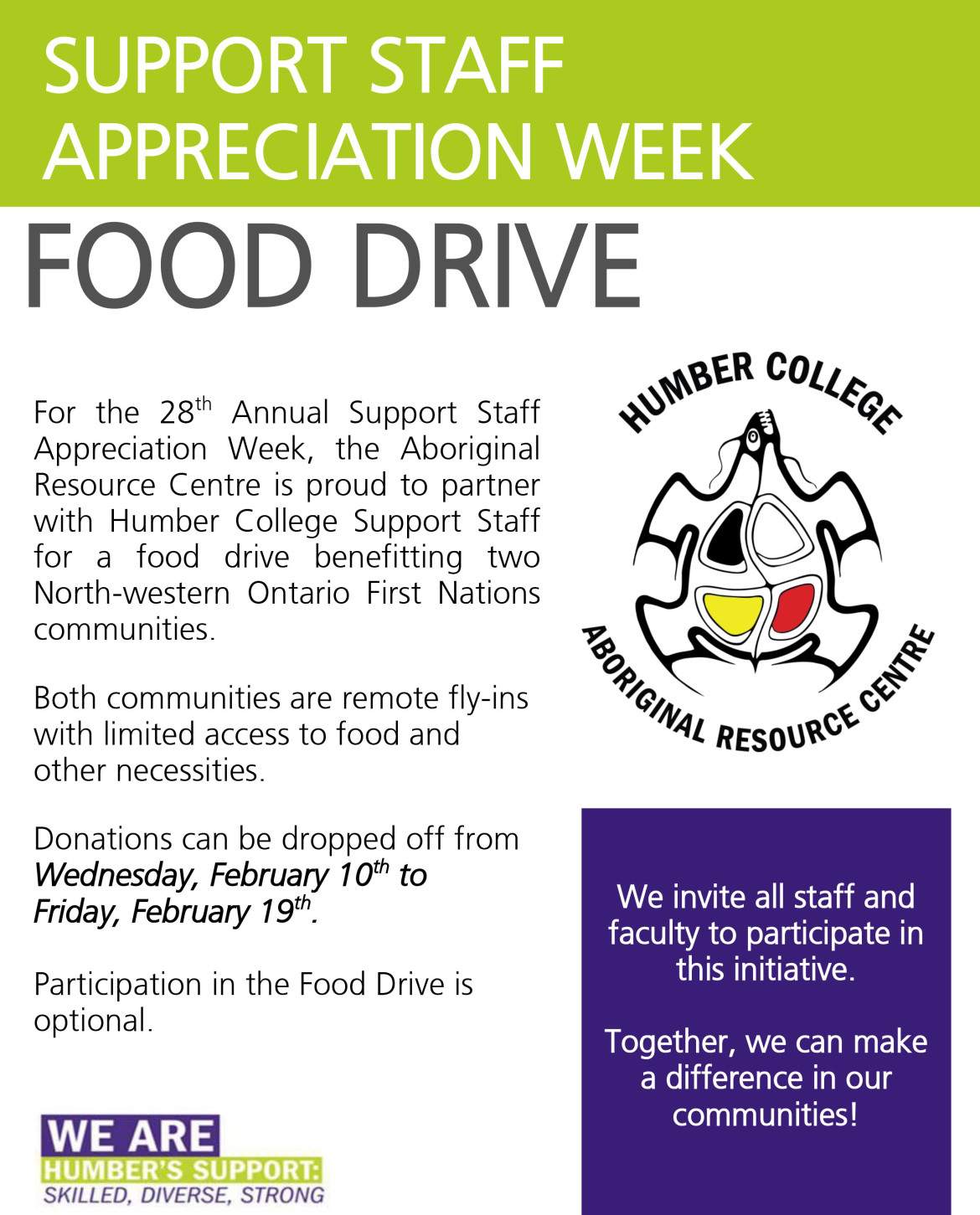
The food drive will run Feb. 10-19. (Humber College Support Staff)
Britnei Bilhete
This week marked the launch of a food drive benefitting northwestern Ontario First Nations communities.
The Aboriginal Resource Centre is partnering with Humber College Support Staff for the initiative during the 28th annual Support Staff Appreciation Week.
The foodbank runs from Feb. 10-19.
“Some of our Humber students actually come from northwestern Ontario,” said Julie Pellegrini, manager of learning and development. “And the communities they actually come from are lacking food because of the ice roads not freezing this year.”
The rises in food cost have also had a big impact on remote First Nations communities across Canada that already struggle with food security.
Though food banks provide some relief to struggling families, it’s a very temporary solution to a larger issue.
Tammara Soma is a contributor to foodwastestudies.com and founding members of The International Food Loss and Food Waste Studies Group, and said Canada is in dire need of a “long-term solution, not just Band-Aid solutions.”
“The local solution is to basically have indigenous food sovereignty whereby the indigenous people can … practice the traditional way of hunting,” Soma said.
“But, at the same time all of this needs money and there’s not a lot of funding for these kinds of initiatives.”
“Food sovereignty really is about taking ownership,” said Kristen Burnett, an Associate Professor within the Department of Indigenous Learning at Lakehead University in Thunder Bay
“Control over how food is produced, who makes the money, where it goes and puts it back in the hands of people like the First Nations,” she told Humber News in an interview.
Hunting is currently a very costly enterprise not accessible to everyone.
“There’s was a recent study done … and it estimated the cost in northwestern Ontario of hunting for a year to be upwards of 25 thousand dollars,” said Burnett. “And it’s not guaranteed that you’re going to get something” while hunting.
In northern Ontario, where there are the most remote First Nations communities in the country, there’s a vast amount of what’s scientifically called micronutrient deficiency cases. Those cases often lead to diseases such as scurvy, rickets as well as cognitive and fetal development, according to Burnett.
In 2011, under the former Conservative government, Nutrition North Canada was introduced to bring more affordable food to First Nation communities but did so by cutting the subsidy eligibility.
But right now, out of the 35 communities in northern Ontario, only eight “are fully eligible and another seven are partially eligible despite the fact that they very much need Nutrition North,” said Burnett.

